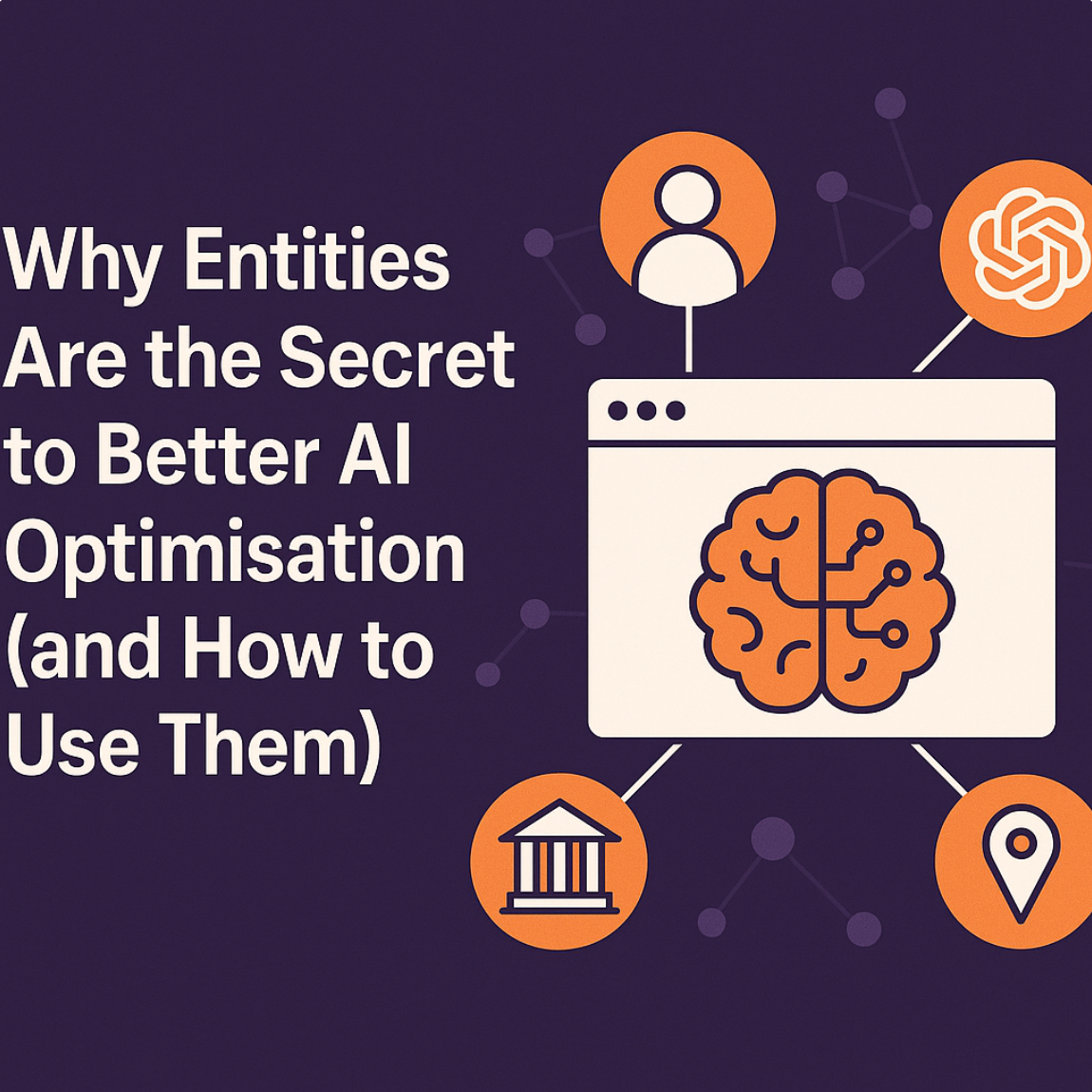Search has changed. It’s no longer just about keywords, backlinks, or metadata. With the rise of generative AI and conversational search, entities have become one of the most important - yet overlooked - elements of modern SEO and content strategy.
In this guide, we’ll break down what entities are, why they matter for AI visibility, and how you can use them to make your website more discoverable in an AI-first search world. Whether you’re trying to rank higher on Google, appear in AI chat results like ChatGPT or Perplexity, or improve your semantic structure - this is for you.
What Are Entities, Really?
In SEO terms, an entity is a uniquely identifiable thing - a person, place, brand, concept, or object - that search engines (and AI models) can understand without ambiguity.
For example:
-
“Apple” (the company) is an entity.
-
“Steve Jobs” is an entity.
-
“Digital marketing” is an entity.
-
“Eiffel Tower” is an entity.
Entities go beyond simple keywords. They carry context. AI systems use them to connect ideas, understand relationships between topics, and determine relevance in ways that traditional SEO doesn’t account for.
So, if your site mentions “AI tools,” “semantic SEO,” and “ChatGPT plugins,” AI systems might infer that your content is relevant to the broader entity of “AI optimisation” - and surface your content in related AI answers or search results.
Why Entities Matter for AI SEO
Modern AI tools like ChatGPT, Claude, and Perplexity don’t just look for keywords - they look for meaning. They build knowledge graphs based on how different entities relate to one another.
If your website doesn’t speak the “entity language,” you’re essentially invisible to these systems.
Here’s why entities are vital:
-
AI summarises content by meaning, not exact phrases. Entities help ensure your brand is included when AI tools generate answers.
-
Google’s Knowledge Graph uses entities to rank and sort results. The more clearly your content ties to known entities, the better.
-
Context is king. A page optimised for entities doesn’t just rank - it ranks correctly, for the right things.
If you want to future-proof your content, focusing on entities is non-negotiable.
How to Optimise for Entities
Here’s how you can start implementing entity-based optimisation right now:
1. Identify the Core Entities You Want to Rank For
Think beyond keywords. What are the real topics or concepts your business represents? A bakery might focus on:
-
Artisan sourdough
-
Local ingredients
-
Gluten-free options
Each of these is an entity you can reinforce across your content.
2. Connect Entities Contextually
Don’t just mention entities - connect them. For example:
“Our gluten-free sourdough is handcrafted in Oxford using locally-sourced organic grains - a favourite among health-conscious foodies in the UK.”
This connects multiple related entities: product type, location, audience, and benefit.
3. Use Structured Data and Schema
Schema.org markup helps AI systems recognise entities clearly. Mark up:
-
Products
-
People
-
Locations
-
FAQs
-
Events
This gives AI tools extra context when crawling your content.
4. Optimise Your Internal Linking Around Entities
Instead of linking from “click here,” link from relevant entity phrases. For instance:
Learn more about our AI content audit process, trusted by SEO professionals across the UK.
5. Audit Your Existing Content for Entity Gaps
Even your best blog post may be underperforming if it’s missing key supporting entities. Tools like ours can show which entities you’re using - and which ones you’re missing.
The Problem With Traditional SEO Plugins
Most SEO plugins are stuck in 2015.
They still prioritise outdated metrics like exact keyword density or page title length, without helping you understand or improve how AI models see your content semantically.
That’s where Semantic comes in.
Meet Semantic: The First WordPress Plugin for Entity-First AI Optimisation
We built Semantic for the next generation of search - one that’s powered by meaning, not just metadata.
With our plugin, you can:
-
Automatically extract and visualise entities from your pages and posts.
-
See which entities are missing compared to your competitors.
-
Understand how AI interprets your content, and improve its visibility in AI search engines.
-
Get real, actionable advice to increase semantic relevance and topical authority - all within WordPress.
If you’re serious about staying ahead of the AI shift in search, Semantic for WordPress gives you the edge.
Final Thoughts: Don’t Just Optimise for Search - Optimise for Meaning
Entity optimisation isn’t a trend. It’s the foundation of how AI understands the web.
Whether you’re running a local service site, a blog, or an eCommerce store, shifting your mindset from keywords to entities will radically improve your relevance, rankings, and AI visibility.
🧠 Ready to optimise for how AI actually works?
